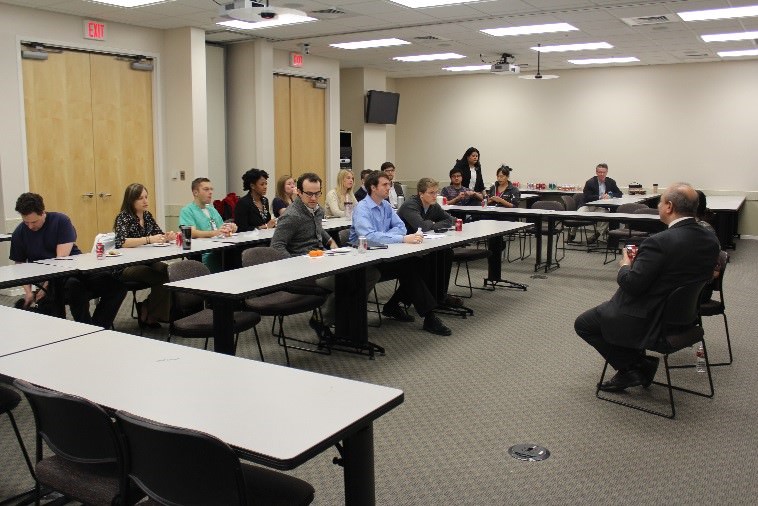M.D./ Ph.D. Student Katie Hinchee-Rodriguez Researches Diabetes

Katie Hinchee-Rodriguez always knew that she would be a scientist. With one parent a mycologist and the other a botanist, Hinchee-Rodriguez was peeking through child-size toy microscopes and swabbing the kitchen counter for cultures by the 3rd grade.
“Both my parents are scientists; they’ve had a huge influence on my passion for scientific reasoning,” Hinchee-Rodriguez said. “They encouraged my curiosity and allowed me to question everything around us.”
Hinchee-Rodriguez’s interest led her to pursue an undergraduate degree in biology and chemistry at Duke University. While at Duke, she also explored gender studies and literature courses.
“Duke’s emphasis on liberal arts coursework has helped me tremendously in science because I’ve learned how to communicate more effectively,” Hinchee-Rodriguez said.

Before applying to graduate school, Hinchee-Rodriguez volunteered at the Fremont
Rural Health Clinic, a free health clinic held monthly in Fremont, NC, a town of approximately 1,500 about two hours from Duke University.
“In Fremont, I volunteered with a population that had no access to basic primary care,” Hinchee-Rodriguez said. “A lot of the symptoms I saw could have been avoided.”
While at the clinic, Hinchee-Rodriguez learned to take vital statistics and realized how much she liked working with patients.
“In science, it can take years or decades before you make a discovery that directly impacts the lives of people, but in medicine, you have immediate gratification when treating patients,” Hinchee-Rodriguez said.
This love for both science and medicine led her to pursue the M.D./ Ph.D. program in the Graduate School of Biomedical Sciences at UT Health Science Center.
“I’m impressed by the faculty, both in research quality and willingness to collaborate. From my first visit onward, I’ve been drawn to the warm and intimate environment,” Hinchee-Rodriguez said. “The Molecular Biophysics and Biochemistry discipline has small classes, so everyone knows each other and
takes care of one another.”

She explained that one of the aspects of the program that she really enjoys is the M.D./ Ph.D. monthly speaker series, “Bench to Bedside.”
The series brings in a variety of successful physician-scientists, such as Nobel Laureate Dr. Bruce Beutler.
“Going to Bench to Bedside is a great way to learn from others’ careers,” she said. “It’s nice having people share their personal
stories so we have a better understanding of the diversity in the ways to be a physician-scientist.”
Currently, Hinchee-Rodriguez is researching Type 2 Diabetes and the impact that obesity has on how specific enzymes in the muscles work.
“We have observed a new mechanism that could have a significant impact in our understanding of insulin signaling and glucose regulation.”
Hinchee-Rodriguez’s research with Type 2 Diabetes is also personal.
“My father died from complications related to Type 2 Diabetes and heart disease, I spent a significant amount of my time in college and graduate school functioning as his caretaker,” Hinchee-Rodriguez said. “It has made me interested in helping others with these diseases and their family. When someone has diabetes, it’s not just them but the entire family who is affected.”
Hinchee-Rodriguez’s goal is to be a scientist with the ability to work in a clinic.
“Research is my primary interest, but I love the ability to directly improve patient’s lives. With my father, I’ve seen first hand the impact a physician can have on immediate quality of life.”
 This article was written by Charlotte Anthony, marketing specialist at the Graduate School of Biomedical Sciences at UT Health San Antonio. This article is part of the “Meet The Researcher” series which showcases researchers at the Graduate School of Biomedical Sciences at University of Texas Health Science Center San Antonio.
This article was written by Charlotte Anthony, marketing specialist at the Graduate School of Biomedical Sciences at UT Health San Antonio. This article is part of the “Meet The Researcher” series which showcases researchers at the Graduate School of Biomedical Sciences at University of Texas Health Science Center San Antonio.
